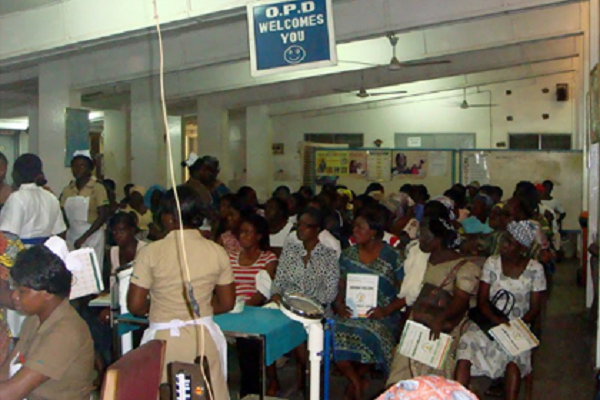
Revise new tariffs on drugs — Medical Superintendents
Medical superintendents in government hospitals in the Ashanti Region have called on the government to revise the implementation date for charging new tariffs on drugs intended for health facilities since the new tariff, which was effected on July 1, 2018, is not helping the institutions.
The Secretary of the Ashanti Regional Medical Superintendents, Dr Eric Kwame Detoh, who made the observation, explained that health institutions were currently using the stock of drugs acquired under the old tariff regime and that no health facility had taken delivery of the new stocks of drugs since the new tariffs were implemented.
Advertisement
“We have not taken delivery of any new stock and so how can we pay the new rate. The market must first attain stability and new stocks of drugs supplied before we can pay the new tarrifs,” he said.
Dr Detoh was speaking at a 3-day annual retreat for Medical Superintendents of government hospitals in the Ashanti Region at Ejisu in the Ejisu municipality of the Ashanti Region.
The retreat was attended by 25 medical superintendents and other stakeholders in the health sector.
They discussed issues related to improving healthcare service in the country.
As part of the programme, the participants embarked on a health outreach to Ejisu, Juaben and Onwe Government hospitals, treated various ailments and conducted 15 major surgical operations over a period of two days.
“As of now, the stock of drugs we have were procured in the first and second quarters so it would be difficult for us to pay the new tariff.
“We should be allowed to operate with the old tariffs until such time that we have new stocks supplied,” Dr Detoh said.
Lack of supply
Dr Detoh said suppliers of drugs to the health institutions had refused to provide new drugs because of the new tariffs being charged and also because the markets were unstable.
On the issue of debt he said the National Health Insurance Authority (NHIA) owed health institutions in the region, for periods ranging from seven, 10 and 14 months depending on the health facility involved.
According to him, the non-payment of debts owed to the institutions was having a major effect on their operations because it had locked up their cash and made it difficult for them to procure essential items for their operations.
Denial of theft
Dr Detoh denied the erroneous impression that some dispensers deliberately ‘cook figures’ regarding health insurance claims, saying “making errors in calculations does not mean cheating the system.”
He suggested to authorities at the NHIA to organise training workshops for new dispensers who might be having challenges in calculating claims.




